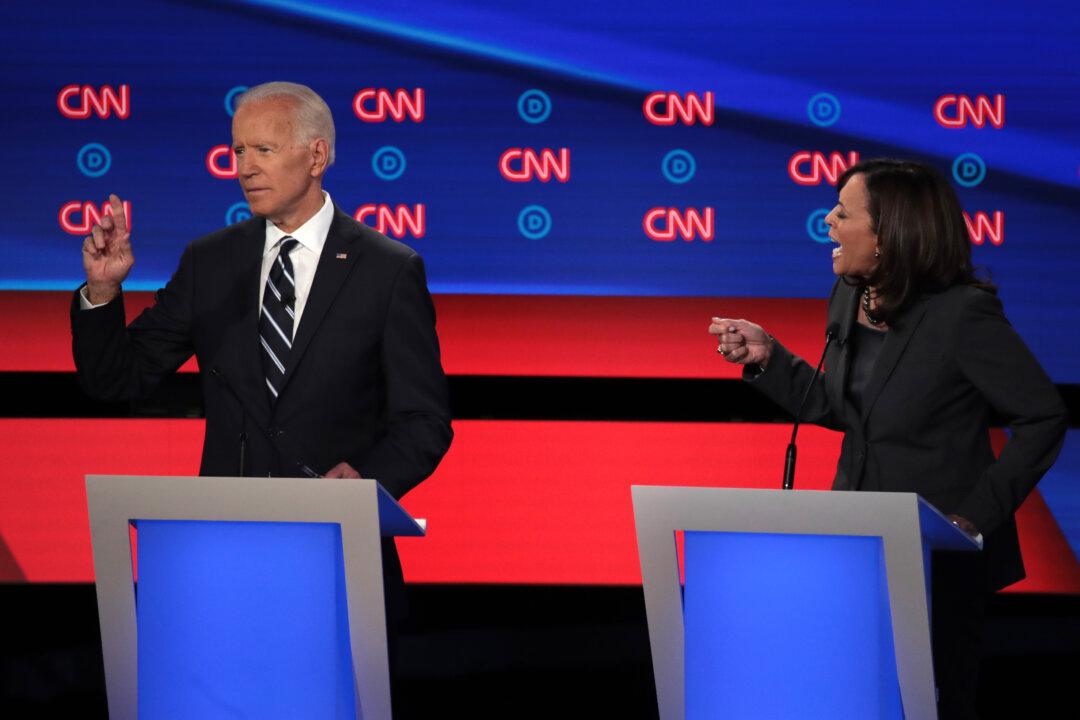Former Vice President Joe Biden and Sen. Michael Bennet (D-Colo.) on July 31 repeatedly exposed the staggering cost and immediate consequences of the socialist Medicare for All policy during the second night of the second 2020 Democratic presidential primary debate.
Bennet and Biden forced Sen. Kamala Harris (D-Calif.) to defend her own health care plan, which calls for transitioning to the socialist Medicare for All model in 10 years. Biden pointed out that Medicare for All is estimated to cost more than 30 times the amount of the plan he is proposing. Bennet cautioned voters that Medicare for All would make employer-based health insurance plans illegal.





